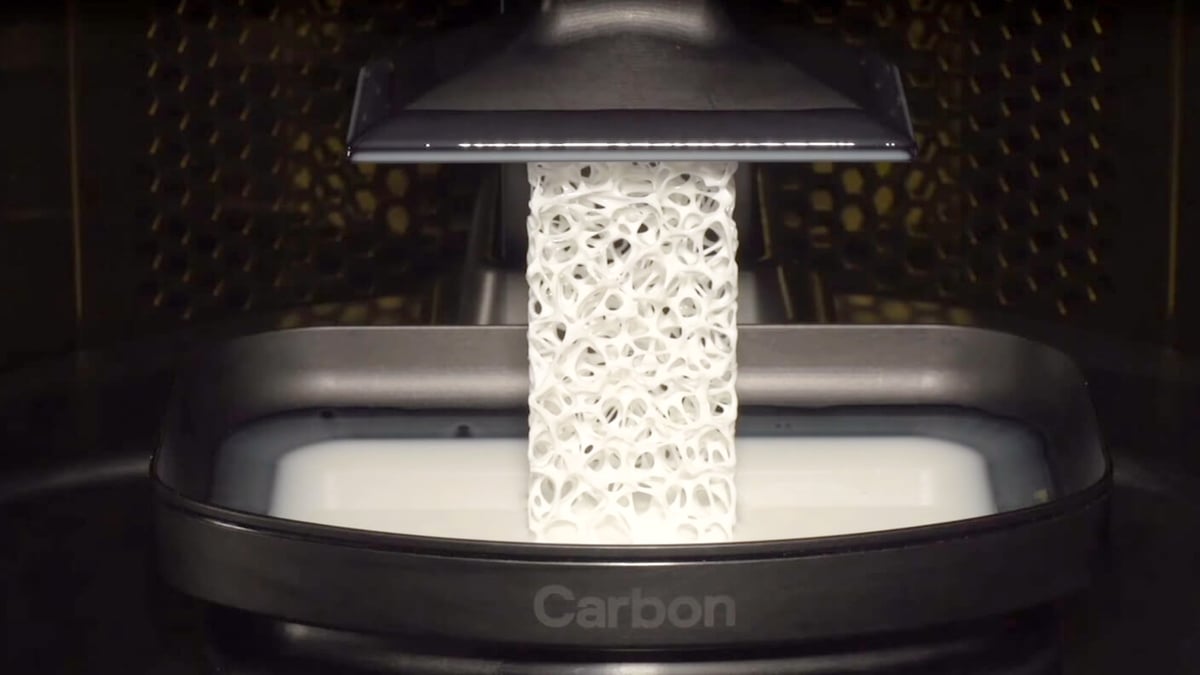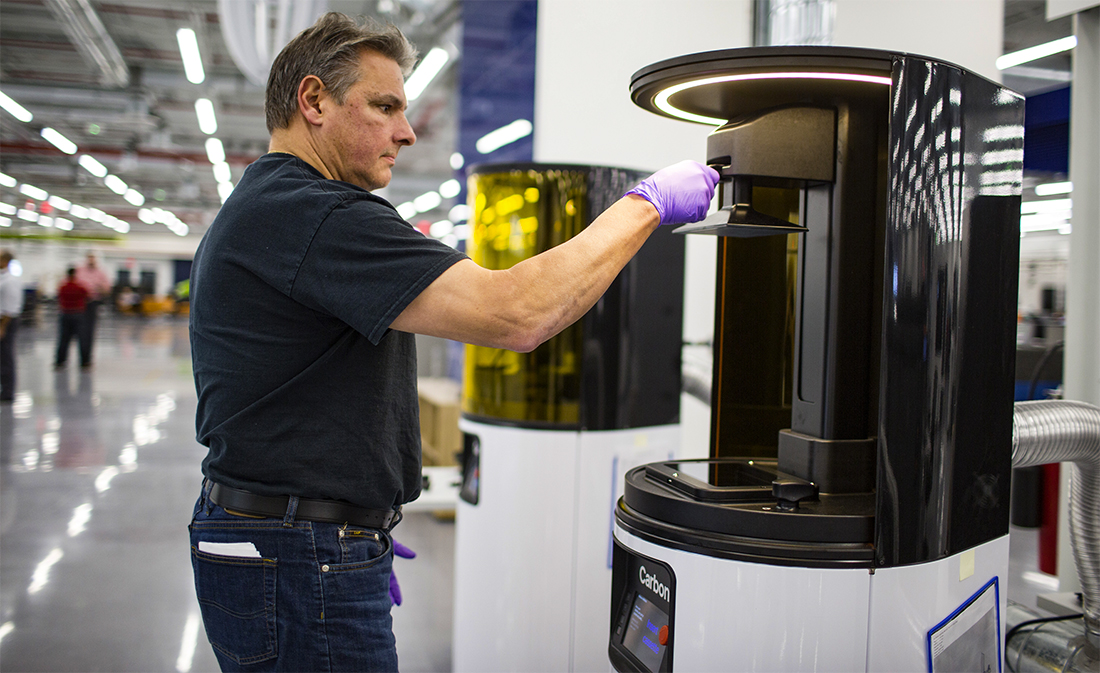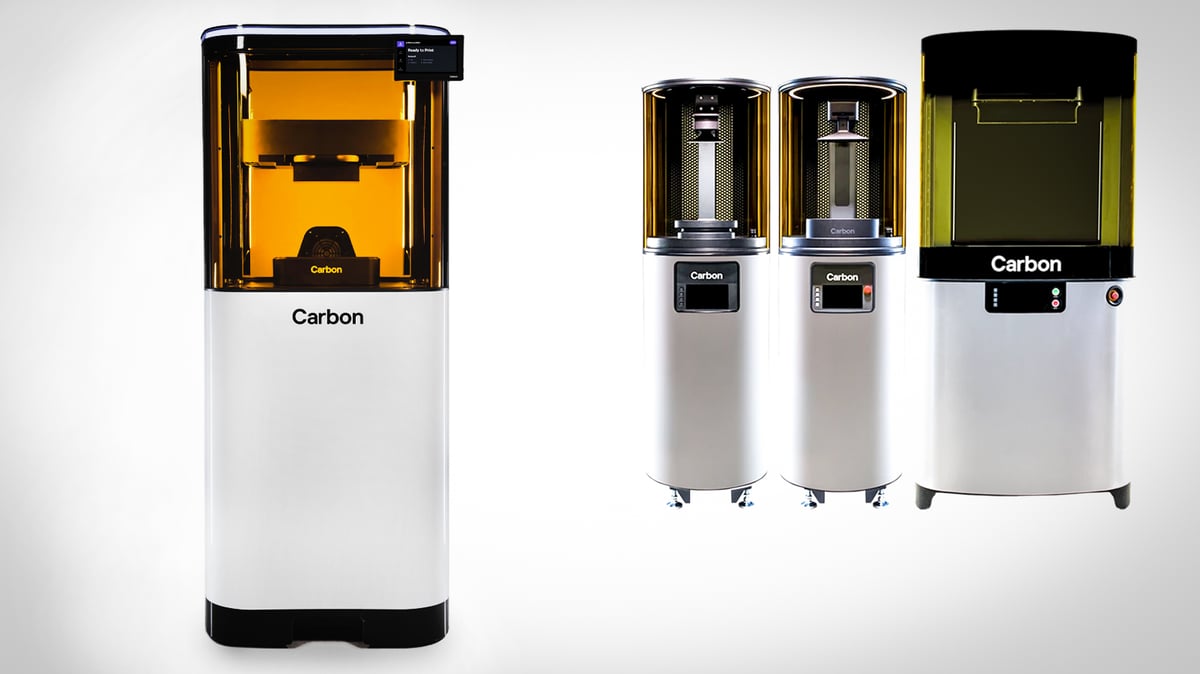
California-based 3D printer maker Carbon just launched a new version of its industrial resin printer that’s faster, larger, more reliable, and comes with new easy-of-use features.
Available in two models, the M3 and the M3 Max provide an “advanced end-to-end idea-to-production platform” when combined with the Carbon software called Design Engine and proprietary Carbon materials.
M3 Specs
- Print Engine: Digital Light Synthesis (DLS)
- Build Volume: 189 x 118 x 326 mm
- XY; Z Resolution: 75 µm; 25, 50 or 100 µm
- Supported Materials: EPX 82, RPU 70, RPU 130, LOCTITE 3D IND405 Clear, EPU 40, EPU 41, MPU 100, CE 221, FPU 50, SIL 30, DPR 10, UMA 90
- Connectivity: USB, Ethernet
- Print Preparation: Design Engine
M3 Max Specs
- Print Engine: Digital Light Synthesis (DLS)
- Build Volume: 307 x 163 x 326 mm
- XY; Z Resolution: 75 µm; 25, 50 or 100 µm
- Supported Materials: EPX 82, RPU 70, RPU 130, LOCTITE 3D IND405 Clear, EPU 40, EPU 41, MPU 100, CE 221, FPU 50, SIL 30, DPR 10, UMA 90
- Connectivity: USB, Ethernet
- Print Preparation: Design Engine
The M3 is the same size as Carbon’s M2 launched in 2019, but boasts a simpler print experience with the help of a new touchscreen that features more printer options. The company also says you can expect 2.5 times the throughput compared to the M2 and a more consistent surface finish. This is an impressive statement since Carbon printers are already among the fastest on the market and known for their high surface quality.
The greater throughput is thanks to better heat management, Carbon says, and you can expect about a 1.4 µm reduction in surface roughness.
More interesting though are the details about heightened reliability from what Carbon calls the next generation of its Digital Light Synthesis resin 3D printing technology. Without going into the weeds of the science, Carbon says the advancement creates lower forces on the part that reduces print failures. The new tech reduces the variation in parts across a single-build by up to 50%, which translates to higher general accuracy and more production repeatability in engineering resins.

Carbon’s resin tech was already unique among the stereolithography 3D printers that cure liquid plastic resin into solid parts using a projector to flash a single image of each layer all at once with ultraviolet light.
The next-gen Digital Light Synthesis can make parts that the previous models could not, Carbon says, unlocking more geometries, especially for elastomeric parts, or parts with features most sensitive to high forces. We’re looking forward to more details on this.
The M3 Max is another fascinating development for anyone interested in production 3D printing. It offers these same features as the M3 but also “true 4K light engine” that enabling double the build area with the same pixel size and density.

Both printers have a wide range of high-performance materials tailored for applications across industries, including automotive, life sciences, dental, consumer products, and industrial.
Carbon offers its own proprietary blend of a broad range of popular photopolymers, including biomedical, high elasticity, and rigid polyurethanes alongside silicone, high-temp cyanate ester, epoxy, and a full set of dental-grade polymers from 3rd party formularies. It’s the kind of diversity you would expect from a company serving automotive giants like Ford and BMW, while also turning out mid-soles with Adidas and medical devices with Johnson & Johnson.
Out With the Old?
The M3 and M3 Max are not intended to replace the M1 and M2 versions, which Carbon says are still quality machines and are not going away. However, because Carbon printers are leased and not sold, existing customers have an easy upgrade path, the company says.
The M3 printer is available now while the M3 Max will be available for order and is expected to ship in the second half of 2022.
Carbon 3D printers start at $25k per year and come with a variety of packages. For more information about pricing and availability, visit Carbon.
License: The text of "Carbon Launches M3 Series 3D Printers for Easier, Faster Industrial Production" by All3DP Pro is licensed under a Creative Commons Attribution 4.0 International License.